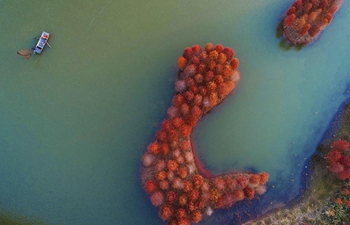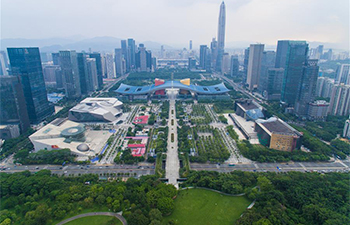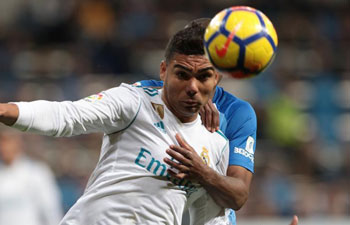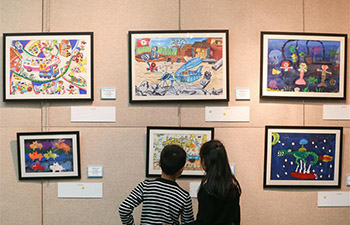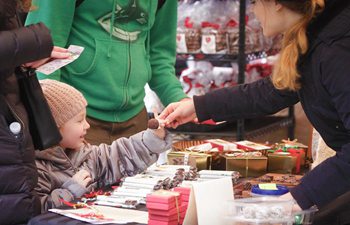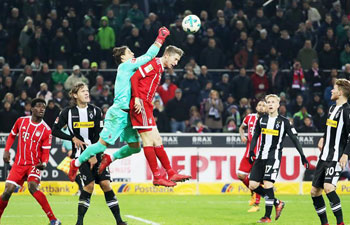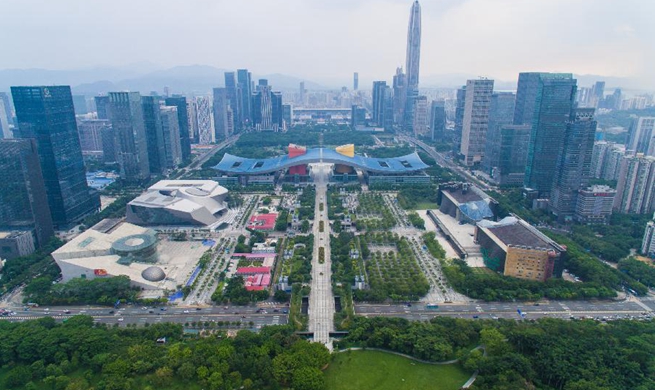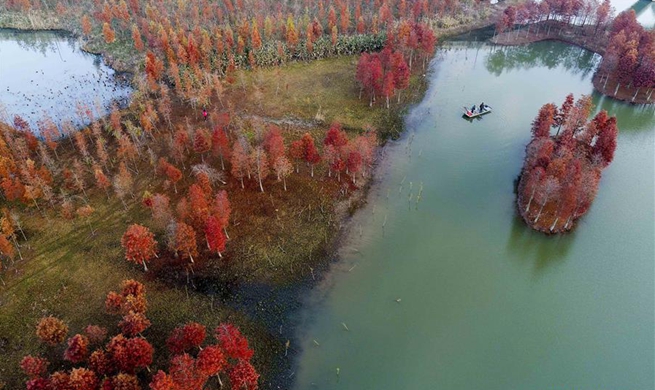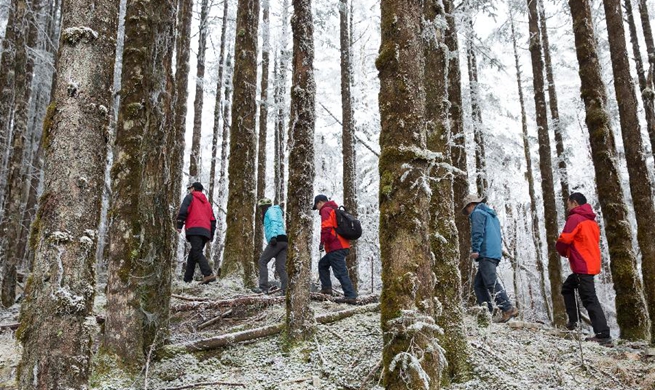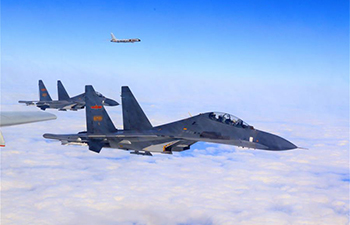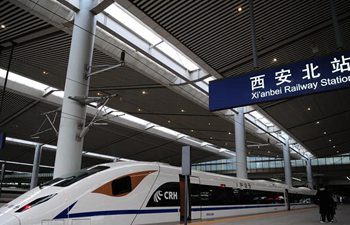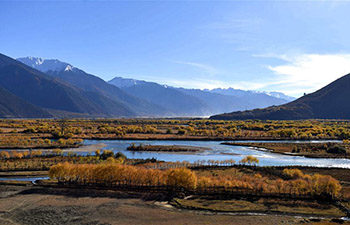HAVANA, Nov. 26 (Xinhua) -- Cuba marked on Saturday the first anniversary of the death of revolutionary leader Fidel Castro, with massive political and cultural events, as part of the weeklong commemoration across the Caribbean island country he had led for 48 years.
At the University of Havana where Fidel Castro "became revolutionary," according to his own words, thousands of people attended a public gathering chaired by the First Vice President Miguel Diaz-Canel and Jose Machado, second secretary of the Communist Party of Cuba.
The speakers and attendees recalled with songs and poems the exemplary life and work of the man who defied dangerously in his youth the dictatorship of former strongman Fulgencio Batista and later the enmity of 10 U.S. administrations.
"Where is Fidel?" yelled the speakers, before being replied "Here!" by the crowd carrying portraits of Fidel and the legendary Argentine-Cuban commander Ernesto "Che" Guevara, among other historic revolutionary fighters and the national flag.
The songs and speeches were accompanied by videos and photos on big screens showing relevant moments of Castro's life linked to the history of the socialist revolution he initiated and led for almost half a century.
"I am Fidel," the national slogan that came up naturally among Cubans after his death, was frequently repeated in chorus by the attendees during the gala at the university.
"I came to pay my tribute to the unforgettable leader who guided us to achieve independence and sovereignty. I am too young and I did not live the previous decades when he kept active in the country, but I have learned from my parents a lot about his life," Dalila Nunez, a 19-year-old student at the Sports University, told Xinhua.
Since the victory of the Revolution and throughout the past five decades, Fidel promoted and led the struggle for the consolidation of the revolutionary process in the Caribbean nation and its progress toward building a socialist society with its own characteristics.
"Fidel marked my life and the lives of millions of Cubans," said Roberto Fernandez, a retiree from the armed forces.
"It is impossible to narrate the history of Cuba and the world in the second half of the 20th century without mentioning him. Undoubtedly, he was one of the most significant figures in the last century, with his influences going far beyond Cuba," Fernandez added.
A series of political and cultural events in honor of the first anniversary of Castro's death have been held since the beginning of this week in the country's main cities.
Castro's son Alex, a well-known photographer, held a photo exhibition, showing photos of his father's life.
The commemoration will continue until Saturday, with numerous political events and vigils at the Antonio Maceo Revolution Square in the eastern Santiago de Cuba city.
The next morning, there will be a popular pilgrimage from that place to the Santa Ifigenia cemetery to pay tribute to Castro on the same day his ashes were placed in that necropolis.
Castro led a two-year guerrilla war before ousting Batista in January 1959. Later as First Secretary of the Communist Party of Cuba and president of the nation, he worked to provide free education and health to the people and develop sports, culture and science.
Castro died on Nov. 25, 2016. He requested before his death that after his decease neither public place will bear his name, nor sculptures will be erected in his honor.
Many foreign leaders have visited his tomb in the Santa Ifigenia cemetery when travelling to the Caribbean island. Thousands of Cubans and Latin Americans have also paid homage to the revolutionary leader, who died in peace at 90, after surviving over 600 murder attempts, an invasion and a nuclear crisis.




